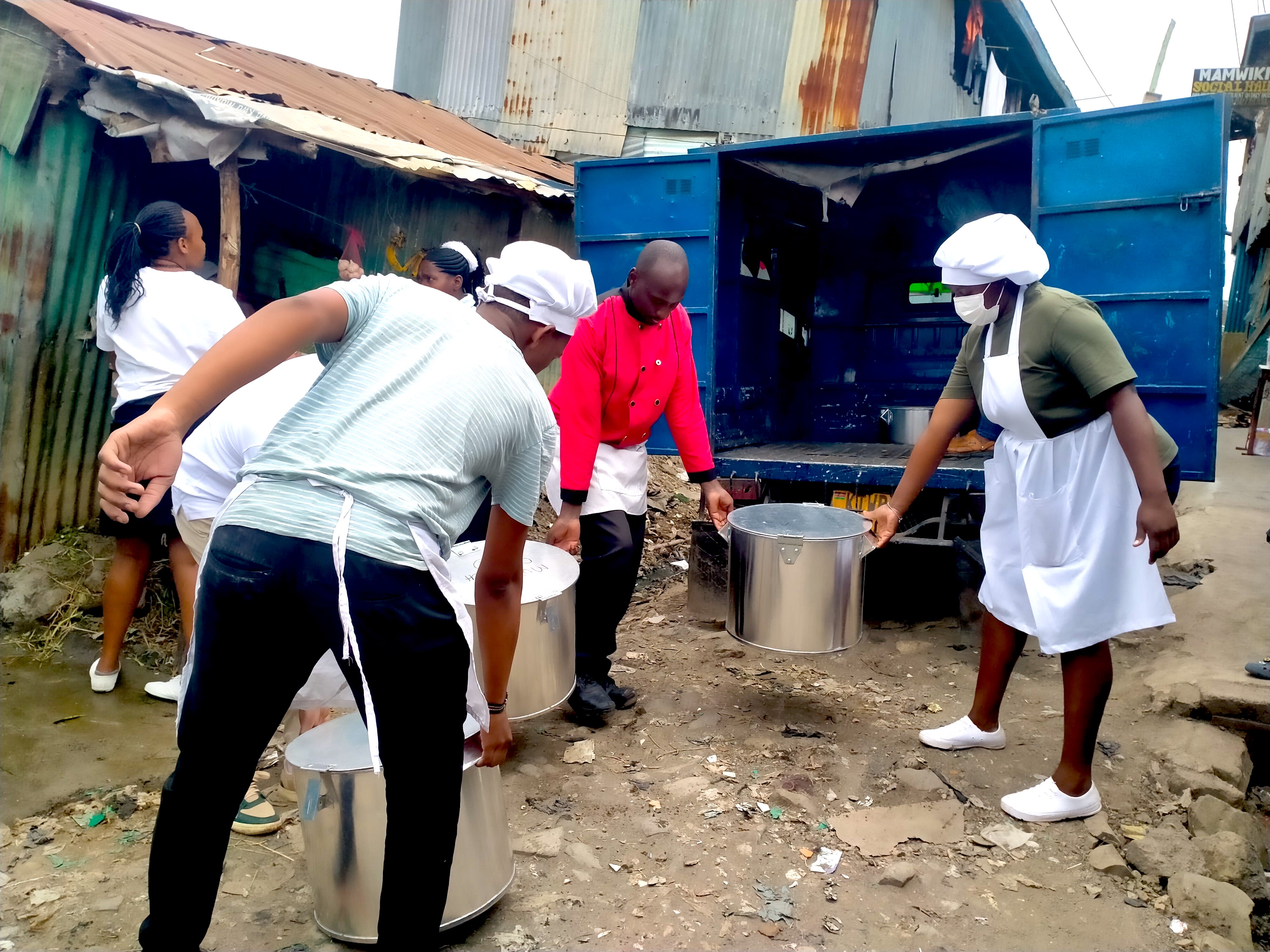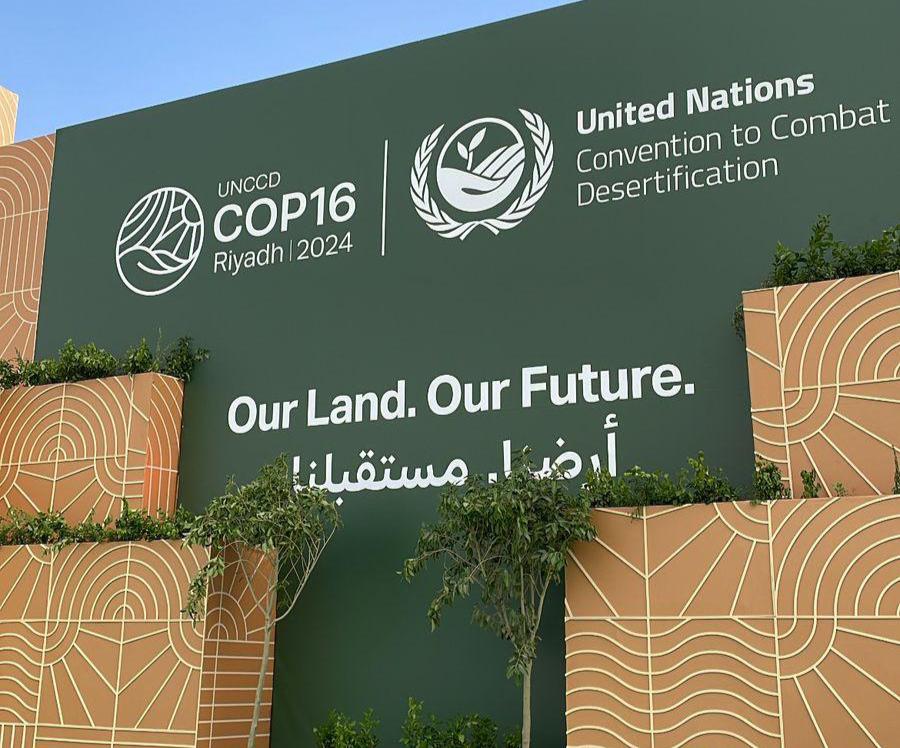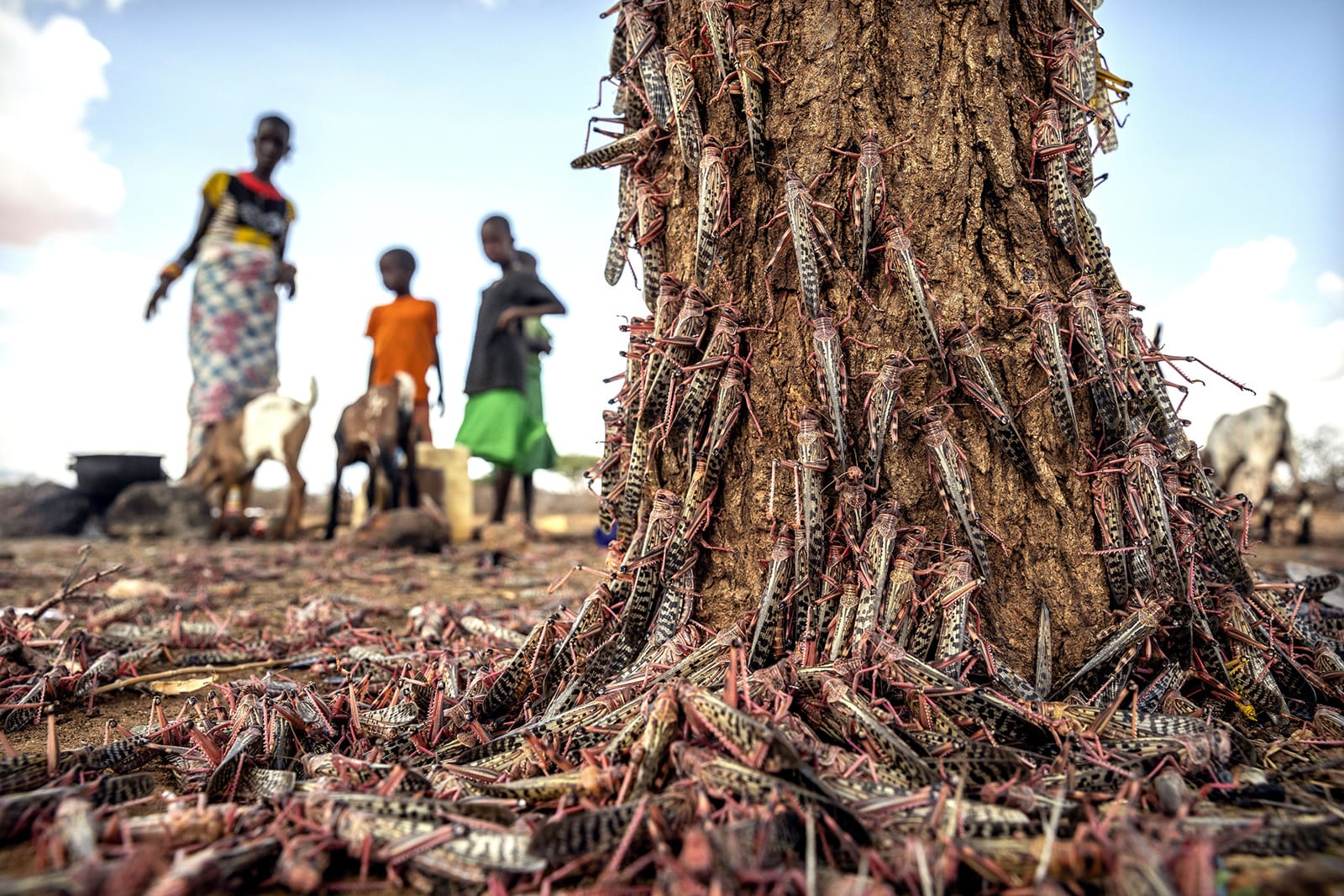Hungry to Learn: rethinking school feeding in Nairobi’s informal settlements
No child should have to learn on an empty stomach. In Mukuru, one of Nairobi's largest informal settlements, TMG Research is collaborating with local partners to build a more sustainable and equitable school feeding model.
by Serah Kiragu-Wissler, Emmanuel Atamba | 2025-04-08

No child should have to learn on an empty stomach, yet in Nairobi’s informal settlements, tens of thousands of children are excluded from government-run school feeding programmes. A 2023 survey by TMG Research and Akiba Mashinani Trust (AMT) revealed that Mukuru, one of Nairobi’s largest informal settlements and home to roughly 2 million people, has only five public schools. They are able to accommodate just 27 percent of Mukuru’s children, leaving 73 percent to attend low-cost complementary schools that fall outside of government service provision for meals. While many of these schools attempt to run feeding programmes on their own, they struggle with financial instability and lack of proper infrastructure. As a result, 84 percent of complementary schools lack a fully operational programme.
To address these challenges, we formed a partnership with two local organisations, Viwandani Community CBO (VICCO) and Ruben Centre. Together, we created an alternative school feeding model that tackles both immediate problems and structural causes of marginalisation while fostering local leadership and engagement in Mukuru. In September 2024, we launched a pilot to test this innovative, community-led model. Over the course of five months, we provided nutritious, reliable meals to children in six complementary schools, resulting in improved attendance, concentration, and classroom engagement. As we work to scale this model, we ask: Could this approach serve as a blueprint for achieving universal school meal coverage in informal settlements across Nairobi — and as a catalyst for advancing the local and global dialogues on school feeding?
The challenges facing universal school meal coverage in Kenya
Regular, nutritious meals are essential for children’s immediate well-being and long-term success, contributing to better education, improved health, and stronger community resilience. Recognising this, school feeding initiatives have gained global momentum, with the launch of the School Meals Coalition at the 2021 United Nations Food Systems Summit reinforcing a commitment to achieving universal school meal coverage by 2030.
Kenya has made significant strides in school feeding since 1966, demonstrated by the Nyayo Milk Programme and the recent establishment of a national chapter of the School Meals Coalition. But there is still a long way to go to ensure that every child gets the nutrition they need. Systemic challenges — including inconsistent political support, financial constraints, ineffective targeting, and programme sustainability issues — continue to hinder progress.
Nowhere are these gaps more evident than in Nairobi’s informal settlements, where traditional school feeding programmes struggle to reach the children who need them most.
In Nairobi, which students can access a healthy meal at school?
Mukuru is one of several informal settlements in Nairobi, along with Mathare, Korogocho, and Kibera, among more than 200 others. Together, these settlements accommodate approximately 60 percent of Nairobi's population – roughly 2 million people – and comprise 5 percent of the city’s land.
In Mukuru, only five public primary schools serve the entire area, leaving over 27,000 children without access to formal education. Low-cost complementary schools fill the gap, but they operate without adequate infrastructure, government recognition, or inclusion in national school feeding programmes.
The Dishi na County initiative is a school feeding programme launched by the Nairobi County Government that operates 17 mega kitchens and serves over 350,000 children across the city’s public schools. Despite its reach, the programme still excludes hundreds of thousands of children in complementary schools within informal settlements. This exclusion deepens structural disparities in education and nutrition, as the lack of access to school meals can contribute to poor concentration, absenteeism, malnutrition, low self-esteem, and a host of related challenges.
A constant struggle: school feeding in Mukuru’s complementary schools
The 123 complementary schools in Mukuru struggle not only to start, but also sustain, school feeding programmes. The survey conducted by TMG Research and AMT found that only 48 percent of complementary schools had active feeding programmes. Even among these schools, only 34 percent reported full student participation in the programme, as many parents could not afford the daily meal cost at up to 50 Kenyan shillings per day. That means only 16 percent of complementary schools have a fully operational and universal feeding programme.
The survey revealed other challenges. The lack of proper kitchens, clean water, and trained staff in many complementary schools compromised food safety. Surveyed parents were also concerned about nutritional quality and variety, as well as accountability issues stemming from a lack of adequate transparency. Moreover, the meals were financially unsustainable for many parents, leading to untimely or missed payments. This in turn compromised the schools’ ability to properly plan and manage the programmes, especially when considering rapidly rising food costs and exorbitant transportation expenses.
Taken together, the survey’s results revealed a need to explore alternative models of school feeding programmes that align with local realities.
A new approach: Could alternative models possibly bridge the gap?
TMG Research and our local partners believe that it is time to explore alternative models that could close the gap. Our goal is to develop a practical school feeding model that responds to the specific needs and capacities of schools in informal settlements which are excluded from government programmes — a model that can serve as a blueprint for complementary schools beyond Mukuru. Ultimately, we aim to strengthen processes that advance the realisation of the right to food.
To these ends, since 2024, TMG Research, VICCO, and the Ruben Centre have explored an innovative and sustainable school feeding model designed to address the challenges in Mukuru.
Drawing on insights from a comprehensive survey that captured the full local context, we developed an alternative model that prioritises affordability, nutritional quality, adequate food quantity, and safety. Our approach introduced creative solutions to longstanding challenges — such as the institutional limitations, affordability and quality — that had previously hindered complementary school feeding programmes from achieving full coverage. Our approach emphasised community ownership and parental participation on meal cost and selection, ensuring lasting impact and a sustainable future for the programme.
In September 2024, we launched a pilot that brought together six schools without comprehensive school feeding programmes within a two-kilometre radius. We equipped one of them with a centralised kitchen capable of feeding 1,500 children. The pilot implemented a progressive payment system that initially offered meals free of charge for one month before transitioning to a parent-funded model. The final cost per meal was set at 30 shillings, but was later adjusted to 25 shillings based on parental feedback.
After five months of implementation, feedback from parents, teachers, and school administrators underscored the programme’s significant impact. The parents expressed overwhelmingly positive feedback. They appreciated the reliability of hot, nutritious meals, which eliminated the need to prepare food at home and ensured that children had access to well-balanced meals during school hours. Teachers observed positive changes in student concentration and overall classroom engagement, attributing these improvements to timely and adequate nutrition. Many noted a marked improvement in school attendance, particularly on Fridays, when meat was on the menu.
In addition to its academic benefits, the programme also contributed to greater equity and inclusion within schools. Previously, disparities in students’ ability to bring food or money from home had created divisions, with some children experiencing embarrassment over not being able to afford food or bringing meals seen as less desirable. The alternative model fostered a more inclusive school environment by providing every student with the same meal.
From pilot to progress: scaling up and creating a blueprint for the future
To achieve universal school meal coverage in Nairobi’s informal settlements, school feeding programmes must be designed around local realities and challenges. This involves engaging school communities, developing innovative solutions to fill programme gaps, and establishing strong feedback mechanisms for continuous improvement. This belief has been the foundation of our work so far.
As we enhance our understanding of the various components of the school feeding model, we remain committed to the lessons learned. These include strong community ownership, proven cost recovery resulting from programme sustainability, and affordable food materials sourcing, preparation and distribution.
What’s next?
We helped establish a community school feeding committee composed of parent representatives, school heads and our local partners (VICCO and Ruben Centre). Over the next three months, we will focus on building the committee’s capacity to manage the programme independently, ensuring its long-term sustainability beyond our direct involvement.
At the same time, we are actively exploring strategies to scale the programme and reinforce institutional frameworks to enhance its impact. This includes identifying pathways for other community-based organisations in similar contexts to access the knowledge and test the model with relevant modifications based on their needs. Through this work, we remain committed to advancing local and global school feeding dialogues. By engaging in action-oriented research and maintaining close collaboration with local communities, we aim to co-develop school feeding models that are sustainable, inclusive, and responsive to context-specific needs.
This research on school feeding is part of TMG Research’s Urban Food Futures action research programme. In close partnership with civil society and academia, we explore how strengthening the informal sector can contribute to the progressive realisation of the right to food.
 Land GovernanceMar 04, 2025
Land GovernanceMar 04, 2025Women are heralded as land stewards, let's herald their land rights
Land is a powerful resource to combat climate change. But growing land demands to mitigate its impacts can worsen entrenched inequalities for women. The Women's Land Rights Initiative poses a novel solution to this challenge.
Joanna Trimble, Frederike Klümper
 Land GovernanceDec 19, 2024
Land GovernanceDec 19, 2024Against the odds: Advancing land tenure and synergies at COP16
Our reflection of the UNCCD COP 16
Frederike Klümper, Jes Weigelt
 Food SystemsNov 27, 2024
Food SystemsNov 27, 2024From Crisis to Innovation: Learning from the Previous Desert Locust Invasions
How we can develop strategies to safeguard our food security and ecological balance
Elena Lazutkaitė, and Emily Kimathi with contribution from the ICPAC Climate Change Technical Working Group
